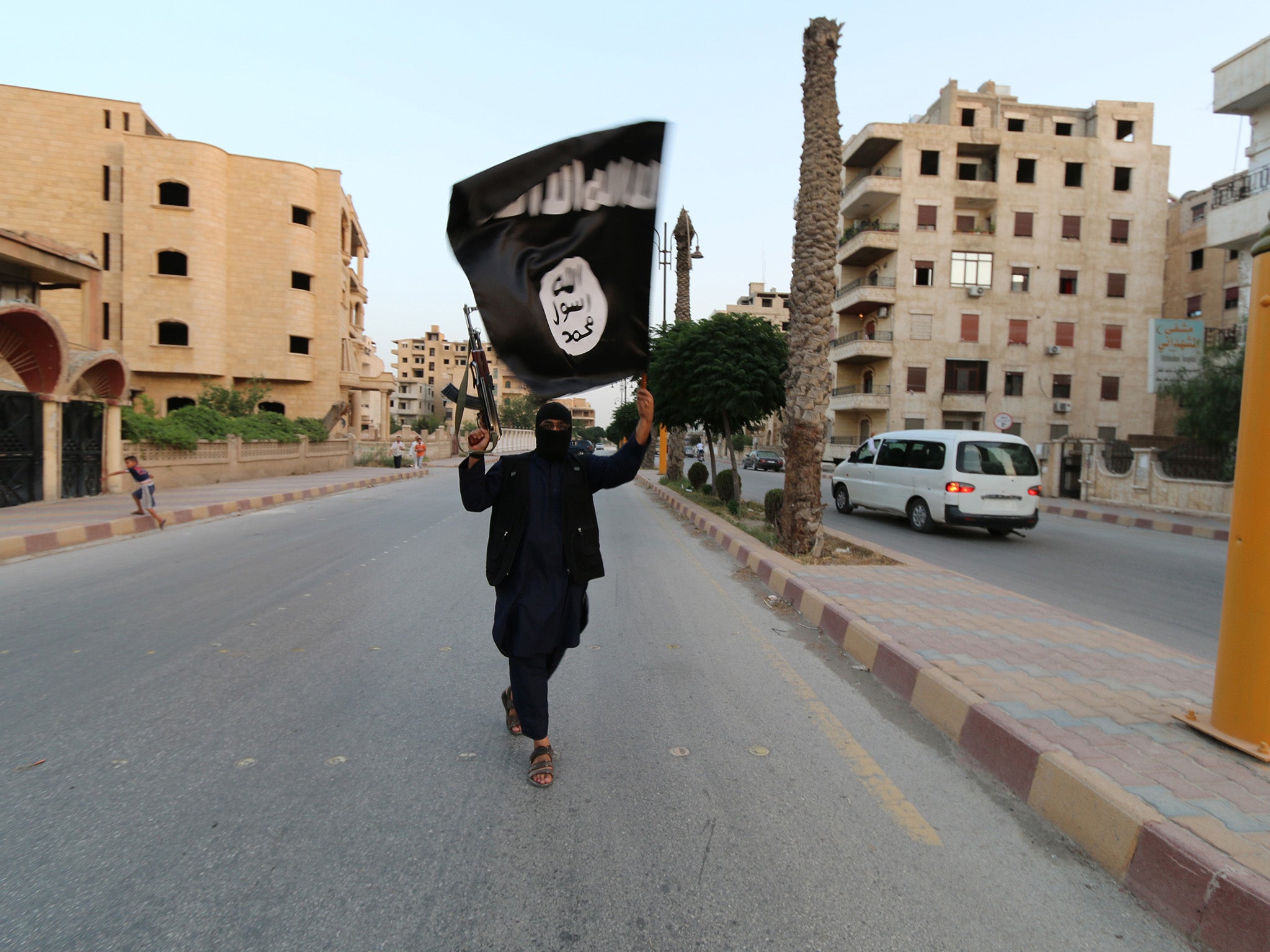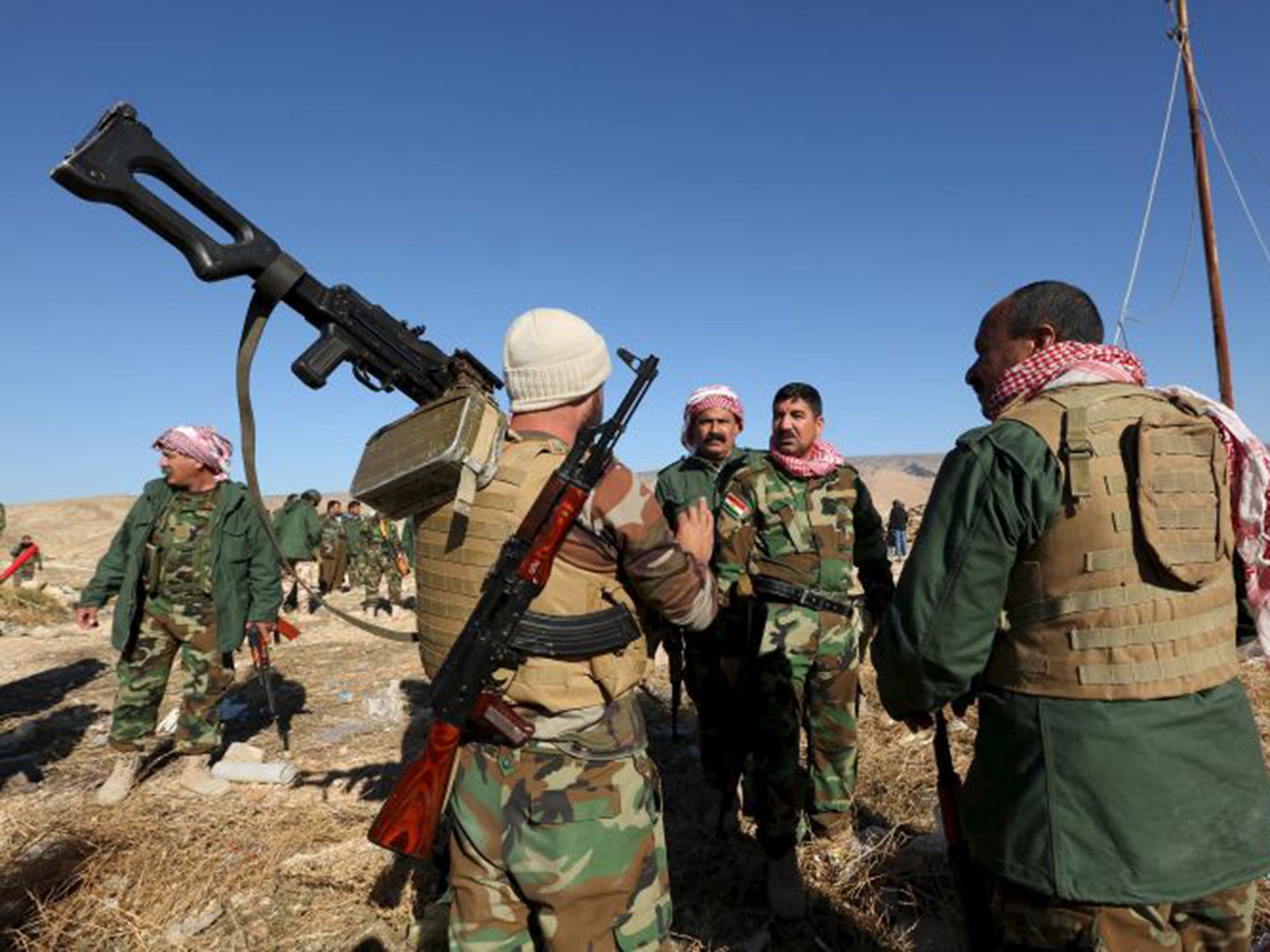Isis used chemical weapons in battle against Kurds, say officials
It would be the first time chemical weapons were used in Iraq since the ousting of Saddam Hussein

Your support helps us to tell the story
From reproductive rights to climate change to Big Tech, The Independent is on the ground when the story is developing. Whether it's investigating the financials of Elon Musk's pro-Trump PAC or producing our latest documentary, 'The A Word', which shines a light on the American women fighting for reproductive rights, we know how important it is to parse out the facts from the messaging.
At such a critical moment in US history, we need reporters on the ground. Your donation allows us to keep sending journalists to speak to both sides of the story.
The Independent is trusted by Americans across the entire political spectrum. And unlike many other quality news outlets, we choose not to lock Americans out of our reporting and analysis with paywalls. We believe quality journalism should be available to everyone, paid for by those who can afford it.
Your support makes all the difference.Isis militants attacked Kurdish forces in Iraq with mustard gas last year, the first known use of chemical weapons in Iraq since the fall of Saddam Hussein, according to one Western official.
A source at the Organisation for the Prohibition of Chemical Weapons (OPCW) told Reuters that laboratory tests had come back positive for the sulfur mustard, after around 35 Kurdish troops were taken sick on the battlefield last August.
The OPCW would not identify who used the chemical agent. But the official, speaking on condition of anonymity because the findings have not yet been released, said the result confirmed that chemical weapons had been used by Isis fighters.

The OPWC, an intergovernmental organisation based in the Netherlands, has the task of monitoring adherence to the Chemical Weapons Convention, an agreement which prohibits the use of chemical weapons and requires their destruction. No one from the OPWC immediately responded to inquiries on Monday.
However, the news agency said that the samples that tested positive for mustard gas, were taken from soldiers who became after fighting against Isis militants near Erbil, the capital of Iraq's autonomous Kurdish region.
The OPCW had already concluded last October that mustard gas was used last year in neighboring Syria. Islamic State has declared a "caliphate" in territory it controls in both Iraq and Syria and does not recognise the frontier.
Experts believe that the sulfur mustard either originated from an undeclared Syrian chemical stockpile, or that militants have gained the basic know how to develop and conduct a crude chemical attack with rockets or mortars, Reuters said.
Iraq's chemical arsenal was mainly destroyed in the Saddam era, although US troops encountered some old Saddam-era chemical munitions during the 2003-2011 US occupation.
Saddam Hussein used chemicals weapons - among them mustard gas - on several occasions during his time as Iraq’s ruler. In March 1988, up to 5,000 people were killed and thousands more injured, after Iraqi forces dropped chemical munitions on the Kurdish city of Halabja.
Saddam also used chemical weapons on a number of occasions during the 1980-88 Iran-Iraq war, much of it made up of mustard gas, a blistering agent that destroys the eyes, skin and respiratory tract. It was used with devastating effect during World War One.
Syria gave up its own chemical weapons, including stockpiles of sulfur mustard, under international supervision after hundreds of civilians were killed with sarin nerve gas in a Damascus suburb in 2013. Western countries blame President Bashar al-Assad for the attack, though his government denies it.
Subscribe to Independent Premium to bookmark this article
Want to bookmark your favourite articles and stories to read or reference later? Start your Independent Premium subscription today.
Join our commenting forum
Join thought-provoking conversations, follow other Independent readers and see their replies
Comments